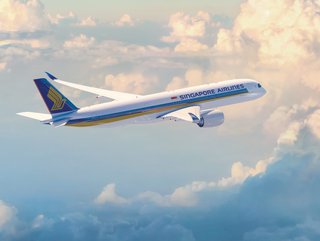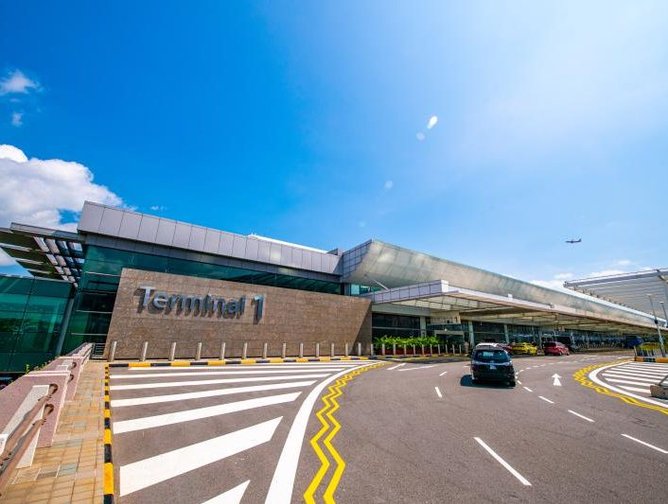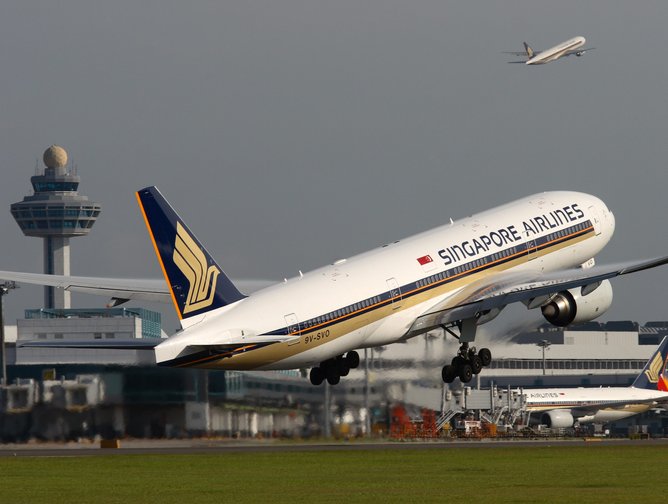Inside Singapore’s Ambitious Sustainable Aviation Blueprint

There is no doubting the role aviation plays in climate change.
In 2022, the industry accounted for 2% of global energy-related CO2 emissions, growing faster in recent decades than rail, road or shipping.
And with international travel demand back to pre-pandemic levels, the urgency for the industry to decarbonise has never been greater.
From airlines to aircraft manufacturers, the aviation industry has pledged to achieve net-zero flying by 2050, as per ICAO’s Long Term Global Aspirational Goal (LTAG) and IATA’s resolution.
Announcing concrete decarbonisation targets for the first time in aviation, Singapore is leading the charge on greening the skies with a new and ambitious roadmap to reaching net-zero aviation emissions by 2050.
Announced by the Civil Aviation Authority of Singapore (CAAS), Singapore’s Sustainable Air Hub Blueprint is aimed at revolutionising the aviation industry.
Singapore Aviation Blueprint to Focus on Supply of SAF
As well as the ultimate 2050 goal, the blueprint outlines an interim goal for 2030 – to slash domestic aviation emissions from airport operations to 80% of pre-pandemic 2019 levels.
Under the blueprint, CAAS will roll out 12 initiatives across the airport, airline, and air traffic management domains, in areas including boosting the use of Sustainable Aviation Fuel (SAF) to optimising air traffic management for efficiency.
Among the first initiatives to be rolled out in Singapore, CAAS is focused on bolstering the use of Sustainable Aviation Fuel (SAF).
Widely acknowledged to be a key element in achieving the aviation industry’s ambitious emission reduction goals, SAF is a biofuel used to power aircraft that has similar properties to traditional fossil jet fuel but with a fraction of its carbon footprint – as it made from sustainable feedstocks.
“The use of SAF is a crucial pathway for the decarbonisation of aviation and is expected to contribute around 65% of the carbon emissions reduction needed to achieve net zero by 2050,” CAAS said in a statement.

How Singapore is Funding Roll-out of Sustainable Aviation Fuel
Singapore has put in place targets for all outbound planes from Singapore to use SAF from 2026 – and 1% of all jet fuel used at both Singapore airports to comprise SAF, with plans to raise to 3-5% by 2030.
Currently, SAF comprises just 0.2% of global jet fuel use, as the available supply is a tiny proportion of the industry’s requirements. But to make more is costly – with SAF about three to five times more expensive than conventional jet fuel.
To achieve this ambitious goal, the recently released Green Skies Initiative requires all outbound travellers from Singapore will need to pay a levy from 2026.
The levy, which will vary depending on the distance travelled and class booked, could for example mean an additional S$18 on a direct economy flight from Singapore to London – a price rise that Transport Minister Chee Hong Tat describes as “manageable”.
This move by the tiny island nation marks a significant shift in how air travel is perceived and managed in the face of the global climate crisis.
It is estimated that US$1.45 trillion to US$3.2 6rillion of capital spending is needed for the aviation industry to reach net-zero emissions.

Neste Supporting Singapore in Supply of SAF
CAAS and the Singapore Government are working closely with industry partners to increase SAF production capacity.
In partnership with GenZero, Singapore Airlines and Temasek recently completed a 20-month SAF pilot – which found that, while Singapore is operationally ready to supply SAF, more is needed to support adoption.
In April last year, the world’s leading producer of sustainable fuels Neste completed the expansion of its Singapore refinery, establishing an integrated SAF supply chain of one million tonnes of sustainable aviation fuel to Changi Airport.
Neste, which is committed to supporting the aviation industry globally in achieving the goal of net-zero emissions by 2050, has chosen Singapore as its global for SAF production.
Among other airline-focused initiatives, as per the blueprint, airline fleet renewal use of data analytics and digital solutions to identify more efficient routes, while in air traffic management, operational improvements are being made to increase efficiency and reduce fuel burn.
CAAS will implement three initiatives in air traffic management over the next five years, with these expected to bring about a 10% reduction additional fuel burn and emissions.
These include improving coordination in management of air traffic, implementing a decision support tool to optimise the departure intervals between aircraft, and development of smart tools to facilitate optimisation of descent flight profiles, to help reduce fuel burn and emissions.
In the Airport domain, the blueprint lays out five initiatives to reduce emissions and scale up green energy use, including:
- Solar Power Deployment – CAAS and Changi are installing more PV systems on available rooftop spaces of airport buildings
- Clean Energy Airside Vehicles – plans to have the entire airside vehicle fleet operate on cleaner energy sources by 2040, and for all new light vehicles, from cars to mini-buses, to be electric from 2025
- Building Energy Efficiency – With A/C accounting for more than half of the buildings’ electricity consumption, the airport is progressively upgrading the chiller systems in terminal buildings and pursuing heat reflecting façade materials
- Resource Circularity Through Waste-to-Energy – Working with stakeholders to study the feasibility of an onsite waste-to-energy facility at Changi
**************
Make sure you check out the latest edition of Sustainability Magazineand also sign up to our global conference series - Sustainability LIVE 2024
**************
Sustainability Magazine is a BizClik brand






